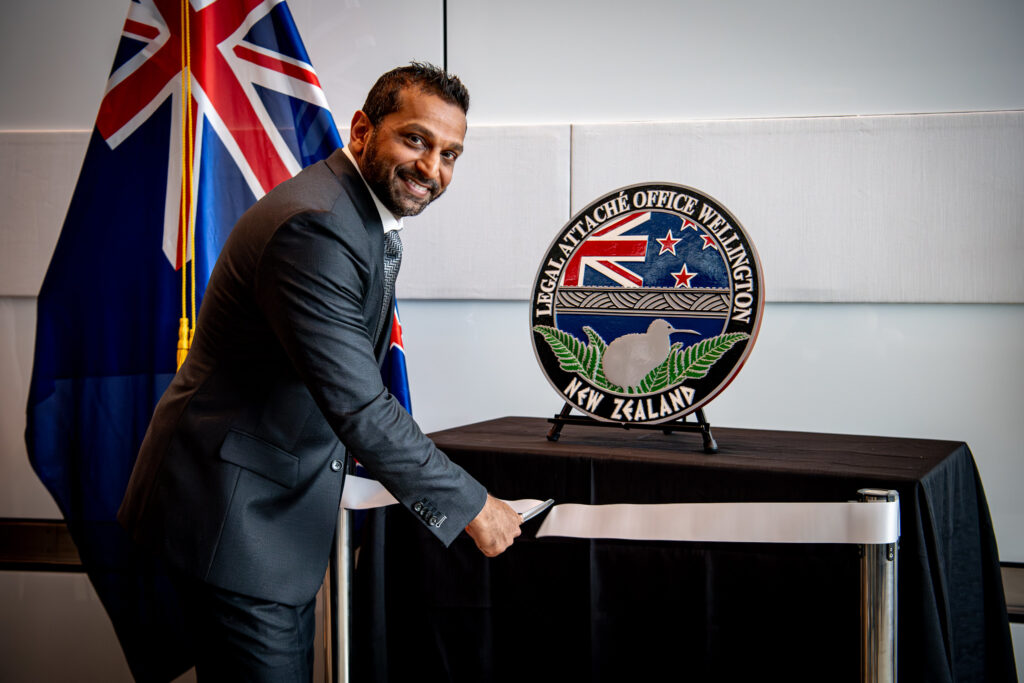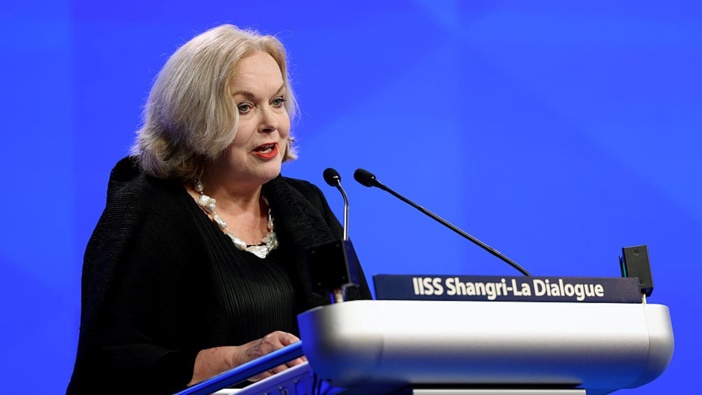FBI Director Kash Patel has opened a permanent office in New Zealand, upgrading the FBI’s presence in the country, as both governments work together to counter Chinese influence across the Asia Pacific region.
Patel travelled to New Zealand to open the office in the capital, Wellington and on Thursday praised the FBI’s “strong relationship” with local law enforcement and intelligence agencies.
Patel singled out US and New Zealand collaboration on issues related to China in a video shared by the US embassy.
“Some of the most important global issues of our times are the ones that New Zealand and America work on together – countering the CCP [Chinese Communist Party] in the Indo PACOM theatre, countering the narcotics trade, working together against cyber-intrusions and ransomware operations and, most importantly, protecting our respective citizenry.”
Kash Patel
He stressed that the FBI cannot “do it alone,” adding, “Our partners in the Five Eyes are our greatest partners around the world. But we need all of them… to get after the fight and put the mission first.”

The US and New Zealand are both members of the “Five Eyes” intelligence-sharing network, which includes Australia, Canada and the United Kingdom. They also collaborate on other issues such as organised crime, cybercrime, drug trafficking and child exploitation.
The US Embassy in Wellington disclosed that the FBI office would investigate “terrorism, cyber crime and fraud, organised crime and money laundering, child exploitation, and foreign intelligence threats”.
It will also cover FBI partnerships in Antarctica, Samoa, Niue, the Cook Islands, and Tonga.
The FBI has maintained a presence in New Zealand since 2017, but the standalone Wellington office marks a major upgrade in the US agency’s presence and will oversee the bureau’s work in Antarctica, Samoa, Niue, the Cook Islands and Tonga.
Both governments have previously expressed concern about China’s growing presence in the Pacific region and Beijing’s successful campaign to expand its diplomatic and economic reach.
Washington fears that the Chinese military could one day build an overseas base in the Pacific region, which has been traditionally considered the US’s back yard.
Patel has spent recent days in the capital Wellington meeting with senior government ministers as well as intelligence bosses and law enforcement officials. Yesterday, Patel met with Minister Judith Collins, Mark Mitchell and a handful of senior government ministers, including Foreign Affairs Minister, Winston Peters, according to local media.
FBI Move Welcomed
Minister Judith Collins, who is responsible for New Zealand’s intelligence services, and the country’s Police Minister Mark Mitchell both said they welcomed the FBI’s decision as it would help “keep New Zealand safe and secure”.
Collins said that the FBI was a valued intelligence partner.
Collins described talks with Patel as an “excellent” meeting with “a lot of good discussion around the need for the FBI and our intelligence agencies, as well as police, to work even more closely together”.
“The upgrade of the FBI presence here into an office that reports through to Washington DC, not through to Canberra, has got to be a good thing … we were the only one of the Five Eyes partners that did not have an FBI office here – we had people, but not a full office.”
Judith Collins

Collins said that New Zealand was “fortunate to be part of Five Eyes” given it had a population the size of Alabama; “we cannot do everything by ourselves”.
She pushed back on suggestions the office was a response to China’s influence, saying it was “about the transnational crime that we see, the increasing influence of major drug traffickers across the Pacific, but also interference in countries’ systems – particularly when I look at some of the gun-running sort of type behaviour that we know goes on the Pacific from transnational and global criminal outfits”.
She did not expect “any response at all” from China to the news.
READ ALSO: Ghana’s Economic Growth Set to Accelerate to 6.2% in 2025 – Standard Bank Forecasts



















